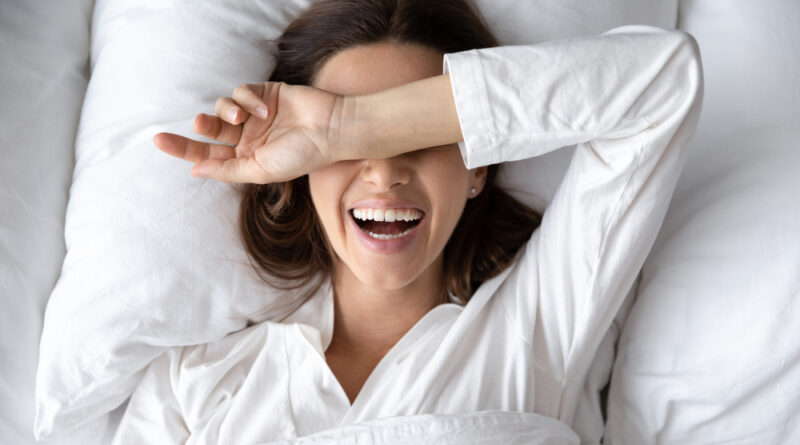Simple Tips for Better Sleep Hygiene
Those rituals we all have before bed are actually referred to as sleep hygiene and it’s more important than you may think. Sleep quality is incredibly important – aside from just feeling awful when you have a bad night’s sleep, sleep deprivation has been linked to increased risk of hypertension, diabetes, obesity, increased anxiety and depression, and cognitive decline to name a few. The first step to ensuring you’re getting a good night’s sleep is creating better sleep hygiene.
Adopt a “Power Down” Routine a Few Hours Before Bed
We rarely take the time to decompress and unwind at the end of the day. Too often we’re working, focusing on our kids’ bedtime, or scrolling through social media right up until the minute our heads hit the pillow. Adopting a “power down” routine starting an hour two before bed can encourage you to relax and set you up for a better night’s sleep.
- As you get closer to bedtime begin turning off or dimming any overhead or harsh lights in your home.
- Do your best to limit your screen time in the evenings, or if screen time is absolutely necessary consider using blue-light blocking glasses and setting up your phone and other devices to automatically switch to dark mode and its blue light filter setting after a certain time.
- Commit to turning off your phone and other electronics 30-60 minutes before bed.
Forget Your Phone
You have to admit completely disconnecting yourself from your phone is a bit anxiety-inducing, right? However, many of us can’t resist scrolling Instagram for half an hour before bed or looking at our phone if we happen to wake up in the middle of the night. Remove the temptation altogether by turning your phone off and charging it overnight in a separate room. Buy yourself an alarm clock to keep from making the excuse that you need your phone for your alarm.
Get Enough Natural Light
Your circadian rhythm relies on the natural light/dark cycles that occur throughout the day. Try to ensure you get enough natural light exposure throughout the day followed by an adequate amount of darkness at night. Sometimes that can feel difficult to do but even getting out for a short walk on your lunch break can make a big difference.
Stay Active
Exercise is something that benefits all areas of our health, including sleep. Aiming for 30 minutes of exercise per day will not only help with weight, cardiovascular health, mobility, and other health issues it can help you sleep better! Whether it’s yoga, a brisk walk, or your usual gym routine getting in a few minutes of exercise per day can make falling asleep a breeze!
Have a Set Bedtime
While it may be difficult, having a set bedtime and wake time ensures you’re getting adequate sleep each night. While it depends on age and health, the optimal amount of sleep for most people ranges from 7-9 hours each night. Having a scheduled bedtime and wake time encourages you to achieve your optimal amount of sleep most nights.
Create an Environment That Encourages Sleep
Your sleep environment plays a huge role in how easy it is for you to fall and stay asleep. There are a number of factors that you can adjust in your bedroom to create your ideal sleep environment.
- Make sure your room is DARK, and I mean really dark. Get blackout curtains if there’s a lot of light outside your house, cover all the lights coming from things like your alarm clock or TV with a towel or tape.
- In the morning, make sure the first thing you do is open your curtains to let in the natural light – it’ll help you wake up, I promise!
- Keep your room free of any unnecessary noise. Don’t sleep with the TV on – set a timer if necessary.
Troubleshoot Your Sleep!
If after adopting better sleep hygiene tips you still find yourself struggling with fatigue, restlessness, or insomnia it may be time to talk to your healthcare team. While there are many pharmaceutical options for treating insomnia and other sleep issues, alternative healthcare offers a wide variety of therapies that can help improve your sleep quality. Consider reaching out to a Naturopathic Doctor such as the team at Yaletown Integrative. NDs are experienced in helping patients troubleshoot their sleep and can offer a wide variety of safe and natural therapies to help you get a handle on your sleep.
Your sleep quality is one of the major keys to your overall health. Make sure you’re making it a priority by incorporating better sleep hygiene.

